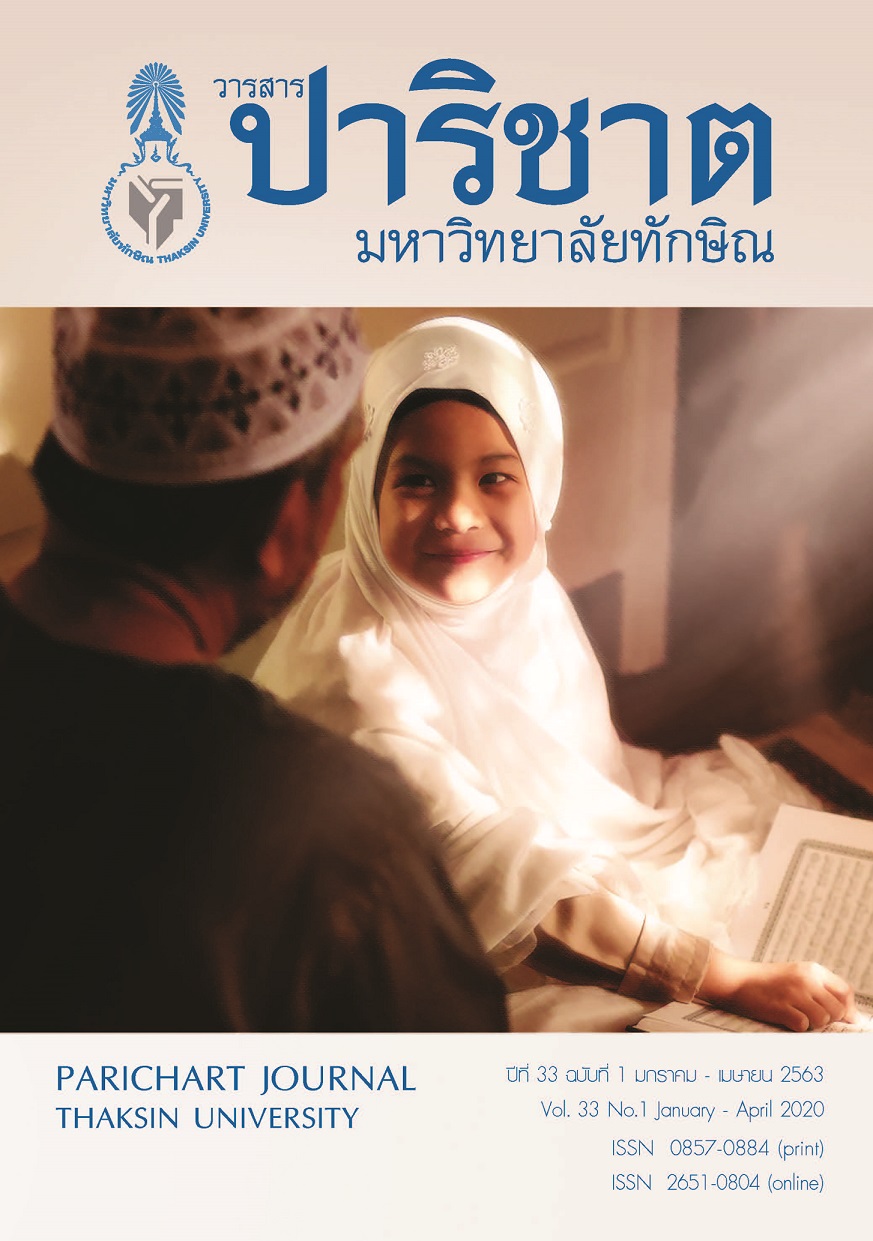Personal Factors, Engagement and Work Performance of Organization
Main Article Content
Abstract
The research is a quantitative study aiming to study of the personal factors, engagement and work performance: a case study of an Exploration and Production Company. The objective of this quantitative research is to observe employees’ opinions toward personal factors and organizational commitment effecting work efficiency in order to motivate employee efficiency. The researcher analyzed research results and managed strategic direction to make employees’ satisfaction and increased work efficiency. Independent variables include personal factors and organizational commitment. Personal factors consist of gender, age, marital status, education level, years of service, and position. Dependent variable is to classify by team effectiveness in terms of quality, quantity, time, and cost. The samples consisted of 152 employees of Oli and Gas company. The sample size was obtained by using Krejcie and Morgan Table. Then data collected from questionnaire were tasted using t-Test, F-Test (One-way ANOVA), Pearson Correlation coefficient at 0.05 statistical significance. The results showed that personal factors affected business performance equally. The organizational commitment of employees was in moderate level with average at 3.33. The organizational commitmentof employee had positive relationship with business performance.
Article Details
References
Supaktisant, S. (1997). Personal characteristics and organizational environment affecting organizational commitment. Master of Management Thesis Graduate Program in Human Resource. Development National Institute of Development Administration.
Kajennun, N. (2008). Organizational behavior. Bangkok: V. Print Company.
Kasemsin, S. (1983). New personnel management (5th edition). Bangkok: Thai Wattana Panich.
Waranyanakrai, S. (2004). Research report on the synthesis of theses related to the commitment. (n.p.)
Allen, N.J., & Meyer, J.P. (1990). The measurement and antecedents of affective, continaunce and normative to the organizations. Commitment to the organizations. Journal of Occupational Psychology. 63, 1-8.
Peterson, E., & Plowman, E. (1953). Business organization and management. Illnois: Homewood.
Taengsi, P. (2003). Personal factors, mental characteristics and organizational commitment with the team effectiveness. Master of Science Ramkhamhaeng University.
Charoenphittaya, P. (2003). Relationship between engagement good membership behavior of the organization and performance. Master of Science Thesis, Graduate School. Kasetsart University.
Klinsukhon, P. (2009). Organization commitment and organizational membership behaviors affecting the high achievement organization of the Department of Healt. Ministry of Public Health Mahidol University.
Nuchaikong, K. (1999). The relationship between organizational commitment and working behavior in operational staff. Master of Science Thesis, Chiang Mai University.
Phitakkampol, A. (2003). The relationship between relationships and supervisors and employee personality and organizational commitment and good membership behavior of the organization. Master of Science Thesis, College of Chiang Mai University.
Tubtim, W. (2003). The relationship between perceived leadership and organizational commitment of employees and the effectiveness of agencies in Chiang Mai Ram Hospital 1. Master of Science, College Chiang Mai University.
Srisaiya, P. (2007). The impact of employee engagement on work performance: a case study of TOT Public Company Limited. Master of Business Administration Degree Program (Management) Ramkhamhaeng University.


